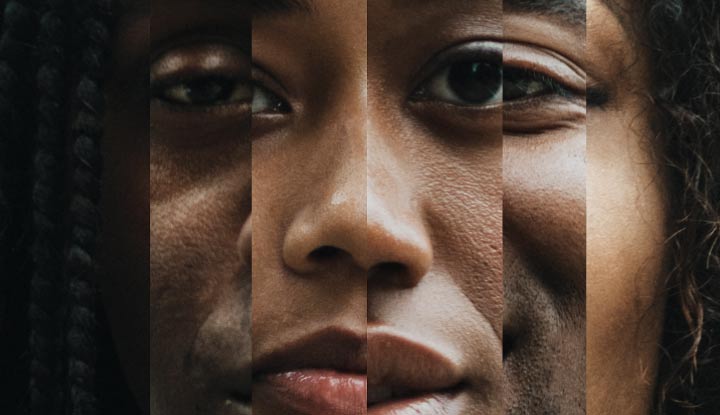The Social Dilemma of Face Blindness : Prosopagnosia
 |
| "face blindness" affects facial memory |
"Expanding the diagnosis is important, because knowing that you have real objective evidence of prosopagnosia, even a mild form, can help you take steps to reduce its negative impacts on daily life.""[These impacts lead to] social distress and embarrassment. [Recognizing someone is a social signal, indicating that] you are important to me.""[Prosopagnosia can be] a consequence of age-related cognitive decline; research in 2017 found that children born underweight became poor at recognizing faces when they grew older]."Joseph DeGutis, HMS associate professor of psychiatry, VA Boston
 |
"If two of us wore the same colour [sweater] at dinner, she would get completely confused. Or if she went into a shop and I waited outside for her, she'd come out and have no idea which one was me. [She can't recognize her own reflection; only when she smiles] she can see a small chip in her tooth that helps her know it must be her.""Her family tend to wear something unusual that identifies them -- her husband wore an unusual necklace."Catherine Loveday, lecturer in cognitive neuroscience, University of Westminster
"[Although there's no cure or clinically proven treatment, there are] compensatory strategies [anyone can adopt.].""Pay more attention to how people smell, or walk, or to other bodily signals that aren't related to the face, which might help you recognize who you've interacted with.""If you're meeting someone for the first time, it might be better to mention it early on, rather than cause offence by forgetting later down the line. Most people are interested and responsive.""Making a concerted effort to try to learn faces by using facial imagery on social media before or after you meet someone might help. An 'I'm not very good with faces -- let me know what you'll be wearing' is a roundabout way of 'scaffolding' interaction without saying 'I have this condition'."Punit Shah, associate professor of psychology, University of Bath

Dr. Shah is the creator of the 'prosopagnosia index' which uses a questionnaire asking volunteers the extent to which they agree or disagree with twenty statements, such as "I often mistake people I have met before for strangers", used for diagnosis in conjunction with computerized face recognition. According to Dr. Shah, whether we have prosopagnosia or not, facial recognition is a spectrum -- at one end the "super recognizers" able to instantly recall a person's face.
Following are those who might struggle to place a name with the face of an office colleague outside the work environment. And at the other hand, according to Dr. Shah, are people with extreme prosopagnosia "who can't recognize themselves in photographs". There are two variations of prosopagnosia, he explains; an "acquired" form that occurs resulting from a brain injury that damages the fusiform gyrus, the area of the brain that deals with facial processing. "That's relatively rare", he says.
The "developmental" form is more common, causing "atypical activity" in the fusiform gyrus and is "naturally occurring". Sufferers, in fact,may not be aware of their affliction until reaching adulthood, if at all. Prosopagnosia is often hereditary, with a link to autism, and likely to manifest while in childhood. A study undertaken in 2020 found prosopagnosia occurs in over 36 percent of autistic adults without any intellectual disability. A recent study from Dartmouth College, New Hampshire, on a woman known only as "Annie", found face blindness may in fact, affect sufferers of long COVID.
A February study published in the journal Cortex pointed to millions of people having prosopagnosia and being completely unaware that there is such a condition, at all. A condition that was thought at one time to affect between two and 2.5 percent of the global population. Researchers at Harvard Medical School and the VA Boston Healthcare System who administered an online questionnaire and tests to 3,341 individuals found prosopagnosia might in actual fact affect up to one in 33 people.
Dr. Loveday, lecturer in cognitive neuroscience, speaks of severe consequences of the condition. People suffering from the condition seem not to struggle with the recognition of objects in the way they do with faces. "I can't grasp a face, and yet I come from such a design/esthetic point of view", commented Brad Pitt, bemused at himself being a sufferer. The 59-year-old actor commented that prosopagnosia leads "so many people [to] hate me because they think I'm disrespecting them".
| Daily Express |
Labels: Common Shared Condition, Face Blindness, Prosopagnosia, Social Interaction

0 Comments:
Post a Comment
<< Home